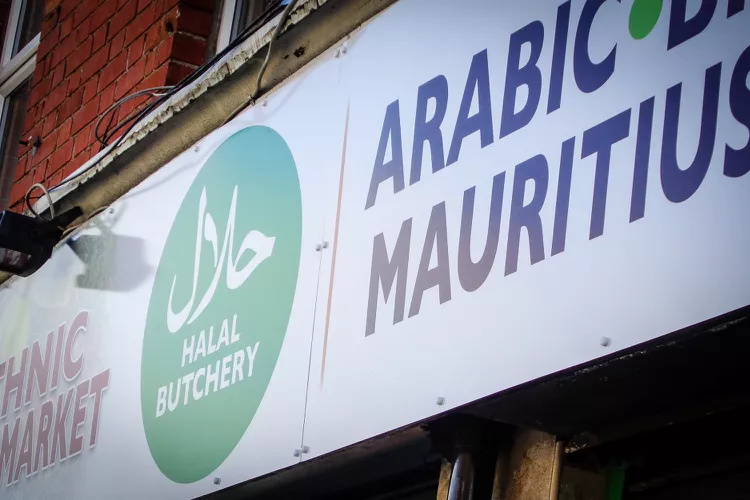Summary
The Practicalities of an Irish Vacation for Muslims
In a world where being a Muslim alone seems to single you out for “special” treatment, Ireland seems to be a haven of normality. Generally speaking, traveling in Europe poses minimal challenges for Muslims. If you are a Muslim considering a trip to Ireland, you may wonder why not go? Whether your purpose is business, sightseeing, or visiting family and friends, you should encounter no significant obstacles.
Of course, depending on your passport, you will need to meet the immigration and visa criteria. Depending on your ethnicity and personal appearance, you might be recognized as a visitor or a “non-Irish national.” However, this applies across all religions, so it’s essential to approach the situation with a balanced perspective.
Traveling as a Muslim in Ireland – a Synopsis
First and foremost, being a practicing Muslim will not hinder your vacation experience in Ireland. The distinguishing factor will often be your ethnicity or mode of dress rather than your religious beliefs. If your appearance aligns with the local populace, you may not attract any undue attention. This principle applies universally—individuals who stand out may face scrutiny, regardless of their personal identity.
Ireland’s legal framework is supportive of diverse ethnic and religious groups, ensuring that being Muslim does not affect your dealings with immigration authorities. You are unlikely to be denied a visa or treated differently due to your religious identity.
While you may occasionally face prejudice or discomfort, such experiences might be less severe than in other nations. Many people in Ireland lack comprehensive knowledge about Islam; misconceptions often simplify complex interrelations—associating Islam with radicalism or terrorism. This tendency is prevalent in Europe and North America, where unfounded associations may prevail.
So, considering these insights, should you embark on your Irish adventure as a Muslim? If you desire to explore or need to visit, there are no barriers to your journey, and truthfully, there are certainly worse countries to consider.
Irish Accommodation from a Muslim Perspective
Securing accommodations tailored to your needs and budget can often be a challenge. Although online booking is straightforward, actual conditions might not meet expectations. If specific aspects concern you, seeking advice from fellow Muslims could be beneficial.
Interestingly, gender segregation is almost non-existent in many public spheres in Ireland. This reality may influence your travel experience, particularly if you are a young Muslim on a budget; many affordable hostels provide mixed-gender dormitories. To avoid this, inquire explicitly about room arrangements or opt for private accommodations, especially when traveling in small groups.
Additionally, you may notice that Christian symbols are often displayed prominently within private accommodations. If this is an issue for you, you might reconsider your travel plans to Ireland.
Eating Halal in Ireland
As a Muslim, starting your day in Ireland may present unique challenges, particularly regarding traditional Irish breakfasts, which commonly include pork sausages and bacon. Even vegetarian options may raise concerns about preparation methods, so it’s advisable to avoid pre-prepared cooked breakfasts.
However, real alternatives exist, such as cereals, fresh fruit, and fish. It is advisable to communicate with your accommodation host openly regarding your dietary preferences.
Regarding halal dining options, you will find many establishments offering halal meat and products in larger towns and especially in Dublin. Look for signs in Arabic indicating “halal” or “ethnic” food. Numerous Pakistani shops carry a variety of halal-certified foods. A smaller number may also offer fresh halal meat at their butcher counters.
However, be cautious—the definition of “halal” can vary between authorities. If you are uncertain about which certifications are trustworthy, it may be wise to consider vegetarian options during your stay.
Worshipping as a Muslim in Ireland
Historically, finding a place to worship may be easier than anticipated. Mosques and prayer rooms are present in all major towns, with larger cities providing a diverse array of options. Many of these places of worship can be somewhat challenging to locate, often tucked away in residential areas. Small signs often make up the only identifiers of these spaces.
If you wish to participate in communal prayers, such as Friday services, consider reaching out to local contacts or observing gatherings within your community. In cities like Dublin, it is common to see Muslim congregations before or after prayers, and many would be more than willing to assist you in finding your way.
Attitudes Towards Muslims in Ireland
Despite the strong Roman Catholic presence in Ireland, general attitudes towards individual Muslims tend to be quite relaxed. This openness can often manifest in a simple understanding: as long as all parties maintain mutual respect, coexistence is possible. However, visible groups of Muslims may draw attention, and any attempts to establish a permanent presence, such as constructing a mosque, could encounter resistance.
The acceptance of Muslims as individuals owes much to the significant contributions of Muslim doctors to the Irish healthcare system. A visit to any Irish hospital frequently reveals that Muslim physicians, often hailing from Pakistan, are the norm. However, misconceptions persist; common stereotypes linking Islam to violence may still influence opinions, with ignorant assumptions being made based on appearance.
A thin line exists between acceptance and Islamophobia in Ireland. Like many nations, Ireland grapples with complex issues related to the growing visibility of Muslims in society. Such dynamics can shift in response to perceived demographic changes or the establishment of Islamic institutions, sometimes leading to negative public reactions.
Furthermore, Muslim women may attract attention if they choose to wear traditional attire, such as hijabs or burqas. Generally, the more Western the appearance, the less you’re likely to stand out.
A Short History of Ireland and Islam
Today, approximately 1.1% of Ireland’s population identifies as Muslim, primarily consisting of immigrants (with only 30% holding Irish citizenship). This marks the most significant Muslim demographic in the country, with a notable 69% growth recorded in the decade leading up to the 2011 census—an astounding 1,000% increase since 1991. As such, Islam ranks as one of the largest religions in Ireland, alongside Roman Catholicism and the Church of Ireland.
Historically, Islam began to gain visibility in Ireland in the 1950s, primarily due to an influx of Muslim students. in 1959, the first Islamic Society was established in the country, where students conducted Friday prayers and Eid celebrations in private homes before the first mosque opened in 1976, supported by King Faisal of Saudi Arabia. The following years saw continued support, including the establishment of the first full-time imam in 1981.
Additionally, the inclusion of a crescent in the coat-of-arms of Drogheda has sparked various legends about historical connections between Ireland and Islamic states. Although there are tales of Ottoman Sultan Abdülmecid providing famine relief to Ireland, substantial historical evidence remains elusive.
Earlier encounters with Muslims were less benevolent, as Irish coastal communities experienced raids by corsairs during their operations. A significant episode in 1631 saw the abduction of most of Baltimore’s population into slavery. These memories may still inform cultural references within Irish folklore.
Contemporary Irish perspectives on Islam and Muslims are often shaped by wider Western narratives, notably those prevalent in the United States since the events of September 11, 2001.
More Information for Muslim Travelers to Ireland
Muslim travelers to Ireland can find valuable information on notice boards in halal food stores, which frequently post local events and useful contacts. In Dublin and Belfast, several institutions provide insights and guidance:
- Belfast Islamic Centre
- Islamic Cultural Centre of Ireland (Dublin)
- Islamic Foundation of Ireland (Dublin)
Lastly, consider a visit to the Chester Beatty Library in Dublin, which houses an impressive collection of Islamic art.





